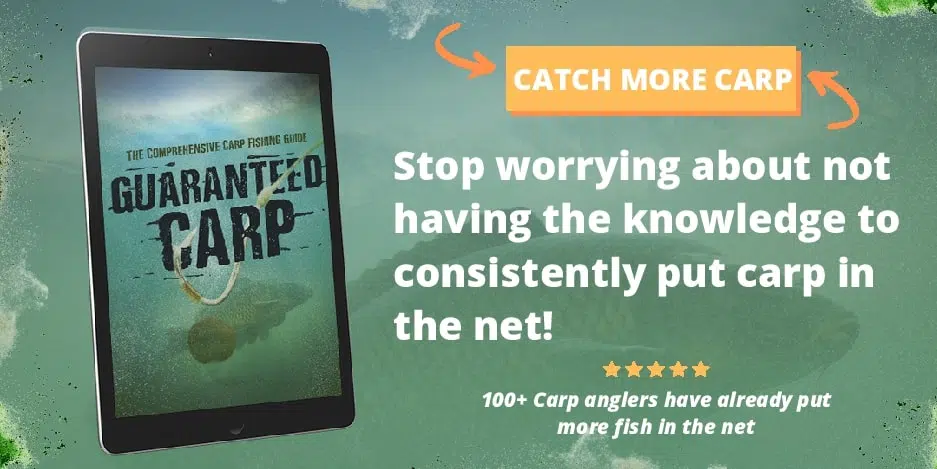
Carp fishing is an extremely popular angling segment across the UK, Europe and other parts of the world.
These fish reach unreal sizes, put up a great fight once hooked and can be a real challenge to hook with specialised tackle and tactics.
In the UK, they are regarded as sport fish, with millions of anglers enjoying targeting them in commercial and public waters.
In the US, however, they are largely regarded as trash fish that are ruining waters and upsetting the balance of notice fish such as the large and smallmouth bass, which is the most popular fish to catch in the US.
One of the reasons is that anglers believe carp make the water dirty, uproot weeds used as hiding and breeding places for smaller fish and cover bass nests with silt.
However, this is not true in some cases.
So, do carp make the water dirty?
Do Carp Make The Water Dirty?
Many studies have tried to get to the bottom of this and clarify if carp actually make the water dirtier once introduced or if other factors cause the dirty water.
To get to the bottom of this, I’ll dive into the findings from some of these studies.
One study found that carp increase the “turbidity” of the water depending on the carp population in the water and what sediment makes up the bottom of the water.
In small ponds, with a silty substrate, and a significant carp population, the carp can dirty the water. This is due to the carp population’s “benthic” feeding of carp as they root through the silt on the bottom of the water, looking for anything edible.
As the carp feed in this manner, they agitate anywhere up to the top 20cm of silt and cause the silt to be suspended in the water, hence making the water dirty.
If the volume of the water is low e.g. in small ponds, and the carp population is significant, this would make sense as the carp feed in a small area.
On the other hand, studies have found that in larger bodies of water with boat activity and being more susceptible to wind disruption then, the carp may not have a massive impact on water clarity.
The effects of boat wake in the water can decrease the clarity of the water by up to 50% if there is a carp population in the body of water or not.
So yes, I would say that carp do make the water dirty, but in larger bodies of water, if the carp population isn’t dense, then there are other factors that have more of an impact on water clarity than these fish.
Can Carp Find Food In Dirty Water?
Unlike other fish species that mat show reduced feeding in water with very low visibility, carp have no problem finding food with their highly adapt olfactory system.
Although carp have relatively good eyesight they also use taste buds on their pectoral fins, barbells, and their olfactory systems also help them to sense dissolved substances in the water so they can find food.
Once carp pick up the scent of a suitable food source, they can follow the scent until they come across the bait.
Once they have found the food source, they will pull the food into their mouth to taste if it is edible before either spitting it back out or consuming it.
The carp feeding process is fairly complex, and if you’re interested in learning more about it you can read this post on how carp feed.

